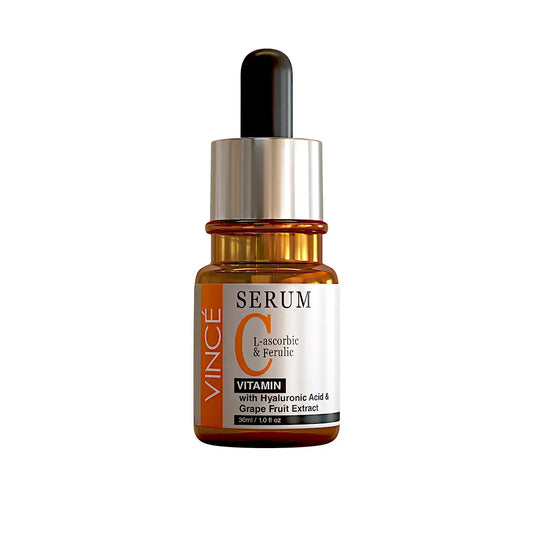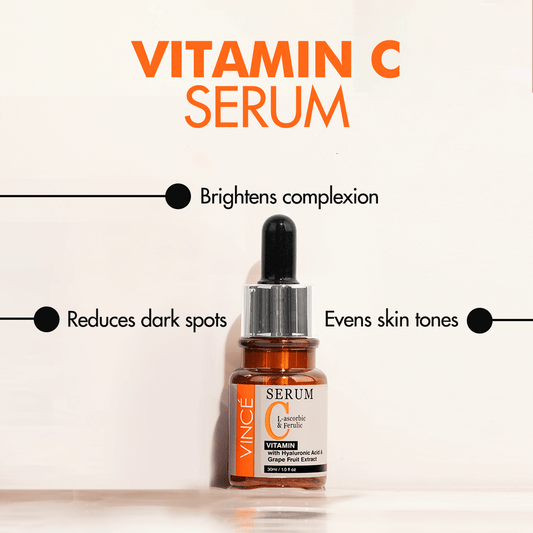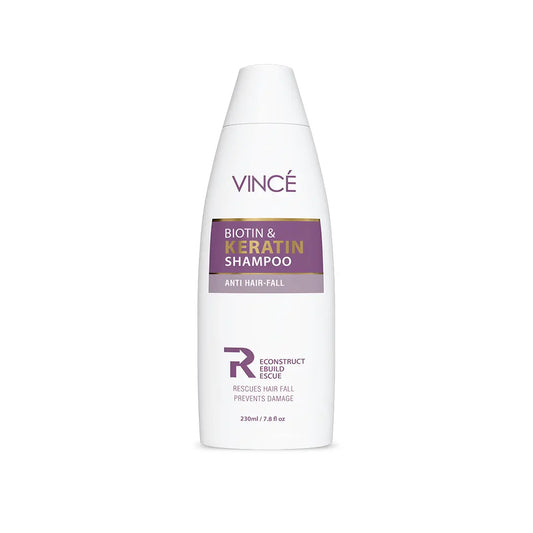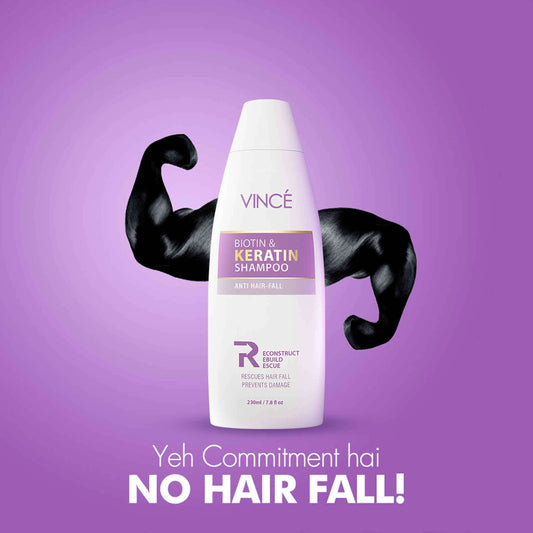Fading Acne Scars: Skincare Routine That Works

Nowadays, due to air pollution and other factors, acne has become a significant skin concern for women of all ages. Although it's a common skin condition, it’s very annoying for some individuals.
Even after the acne is healed, it might leave scars and spots on the face, which can be quite irritating and unpleasant. In most females, it is also a major cause of lack of self-confidence.
To resolve this issue, it is necessary to follow a set skin care routine, which will help you fade these acne marks and save your skin from targets like hyperpigmentation and brown spots.
Dive in to discover the best skincare routine to get rid of this problem and to achieve that glowy, glass-like skin which will leave you feeling confident as ever.
Why Do Acne Scars Happen?
Acne marks are caused by inflammation, which damages the skin tissue, so a skincare routine is important to control them.
Dark patches, red or purple discoloration occur due to the skin tone being lighter. Moisturizing exfoliating can control acne and brighten your skin tone.
Tips for Building a Skincare Routine for Acne-Prone Skin
When you apply a new product, you should do a patch test on your hands. Use sunscreens for sun protection. Always use calming and hydrating products. Avoid harsh scrubs or alcohol-heavy toners. Don't over-exfoliate your skin; also, do not pick or squeeze pimples.
Understanding Acne Scars vs. Post-Acne Marks
Understanding the difference is important:
- Acne Scars are caused by harm to the skin's tissue and can be either atrophic or hypertrophic.
- Post-Acne Marks: These are flat, discolored spots left after a breakout. These are easier to treat than true scars.
The Ideal Skincare Routine for Acne Scars
A strategic skincare routine tailored for acne-scarred and acne-prone skin should include ingredients that promote healing, encourage cell turnover, and prevent new breakouts.
Important Link: 9 Natural Honey Remedies for Acne: Soothe, Heal, and Glow!
Morning Skincare Routine
1: Gentle Cleanser
Using a gentle cleanser according to your skin type can do wonders for your skin barrier. Always prefer to use a cleanser that has grape seed extract, a potent ingredient known for its cleansing properties. A sulfate-free cleanser is recommended for all skin types.
Vince Cleansing Milk is a mild and soft deep pore cleanser enriched with grape seed extract. It penetrates deep into the skin and helps to gently remove grime, dirt, makeup, and daily impurities.
Apply it directly onto your face and start massaging, then use a cotton pad to wipe off.

2: Vitamin C Serum
Vitamin C serum is yet another powerful ingredient that helps fight acne marks effectively and reduces hyperpigmentation. Your skin looks naturally fresh and glowing. Vitamin C serum fades discoloration and provides antioxidant protection throughout the day.
Use Vince’s Vitamin C Serum to achieve a more radiant and even-toned complexion. It helps stimulate collagen production, making skin firmer and more youthful over time.

3: Moisturizer
Moisturizer is best for acne-prone skin. Moisturizers help to remove oil and dust from your skin. They can repair your skin, clean your skin deeply, and give your face a natural glow.
Always choose Non-comedogenic, lightweight gel or lotion formulas.
Vince Hydrating Body Milk: It makes your skin smooth, luminous, and even-toned while also giving you the strength to deal with various environmental fluctuations. It helps to make your body’s skin perfectly moisturized and stay hydrated for a long time.
Massage until it is completely absorbed into the skin. For better results, use it daily.

4: Broad-Spectrum Sunscreen (SPF 30+)
Applying sunscreen is crucial and should always be included in your skin care routine to protect your skin from harmful UVA and UVB rays. Sunscreen can prevent further darkening of scars and support healing, and reduce pigmentation
Night Skincare for Acne Scar Healing
Your skin heals at night; it is a time to use products and do night care, starting with a double cleanse, which cleans your face deeply and removes all makeup and dirt. Exfoliate your skin twice a week, and your skin will look fresh and healthy, and remove all dead cells
How to Fade Acne Scars Naturally
If you want to control acne, follow a skincare routine and home-made ingredients that can change your life. Home-made ingredients include:
- Aloe vera can reduce inflammation and promote healing. Tea tree can be used to reduce acne and scarring, and lemon juice helps lighten scars.
- Turmeric is useful for reducing redness and healing scars as well, and cucumber can reduce inflammation and promote skin regeneration.
- Licorice Root Extract that can brighten your dark marks and doesn't irritate your skin, also Rose hip Oil is useful for pigmentation and textured scars.
Vitamin C for Acne Scars
Vitamin C is one of the best ingredients for brightening skin, boosting collagen, and fading freckles and dark spots. Use Vince’s Vitamin C Serum to achieve a more radiant and even-toned complexion. It helps stimulate collagen production, making skin firmer and more youthful over time.
The lightweight formula absorbs quickly and is suitable for all skin types. For best results, apply daily under sunscreen to enhance protection and glow.
Important Link: 7 Types of Acne on Face
Exfoliating Acids for Post-Acne Marks
Exfoliating your skin twice a week can remove dead skin, improve your skin’s texture, and make your skin appear fresh and healthy. It helps to unclog pores and prevent breakouts. Regular exfoliation can also help to prevent hyperpigmentation.
When dead skin cells are removed, all products absorb easily, and it also helps to prevent environmental stress like pollution and UV rays. Choose a chemical exfoliant that contains lactic acid and Salicylic acid, helpful for hydration, oil-soluble, and suitable for open pores.
Healing Routine After an Acne Breakout
Use calming ingredients, Centella Asiatica, Aloe Vera, and Green Tea, which are useful for soothing inflammation. If your skin feels sensitive, avoid some retinoid and acid activities for a few days, use moisturizer and serum that can strengthen your skin barrier
Sun protection can prevent your skin from damage and darkening of scars. Keep your skin hydrated, do some exercise and yoga, which can be good for mental stress, and balance your daily diet routine.
Add rich foods to your diet, like fruit, vegetables, and grains, which make your skin healthy
Conclusion
A comprehensive acne skincare routine, which includes deep cleansing, exfoliating, moisturizing, and applying sunscreen, can effectively fade acne scars and marks over time.
While some scars may fade naturally with patience, professional treatments and targeted ingredients like retinoids, salicylic acid, and glycolic acid can accelerate the process.
Consistency and a tailored approach based on individual skin type and acne severity are key to achieving and maintaining clear, healthy skin.
It's very important to keep your skin hydrated, cleanse your face daily, and exfoliate twice every week to remove dead skin cells. Moisturizing helps heal your skin effectively. These skincare steps make your skin healthy and fresh.
Additionally, protecting your skin from the sun and maintaining a healthy lifestyle can also contribute to fading acne scars. With patience and persistence, a well-designed skincare routine can help you achieve smoother, more even-toned skin and reduce the appearance of acne scars.
Frequently Asked Questions (FAQs)
Q1: What is the best skincare routine for acne scars?
A combination of daily sunscreen, vitamin C in the morning, exfoliating acids at night, and targeted treatments (like niacinamide, retinoids, or tranexamic acid) forms an ideal skincare routine for acne scars.
Vince Whitening Sunblock SPF 35. Its lightweight, non-greasy texture provides a shield against sun damage and reduces the risk of skin darkening, pigmentation, and premature aging. This sunblock is suitable for all skin types and is also good for children and adults of all ages.
Apply Vince Whitening Sunblock SPF 35 on a clean face, neck, hands, feet, or any other specific area that might be exposed to the sun. Massage gently until it absorbs completely.
Q2: Which ingredients are most effective for fading acne scars?
-
Vitamin C
-
Niacinamide
-
Retinoids
-
Tranexamic Acid
-
Alpha Arbutin
-
Exfoliating acids (AHA and BHA)
Q3: Can exfoliation help reduce acne scars?
Yes, exfoliating acids for post-acne marks can accelerate cell turnover, fade dark spots, and smooth texture. Use them 2–3 times weekly to avoid irritation.
For Exfoliation, use Vincé Exfoliating Papaya Face Wash, which is rich in antioxidants and contains Papain, which helps to smooth the face by getting rid of all the toxins, dullness, and impurities accumulated on the upper skin surface. This Papaya face wash is great for getting rid of tan, lightening the skin tone, and making skin softer, moisturized, and glowing.
Wet your face, pour a small amount of Vincé Papaya face wash on your palm, lather it and massage all over the face and neck in a circular motion, rinse off with fresh water. For better results, use twice or thrice a day.
Q4: How long does it take to see results when treating acne scars?
-
Mild PIH: 4–8 weeks
-
Moderate scars: 2–3 months
-
Deeper scars: May take longer or require dermatological treatments like micro needling or lasers
Q5: Should I stop using acne treatments after the breakouts are gone?
No. Continue using non-comedogenic and soothing products to maintain results and prevent future breakouts. Retinoids and niacinamide, for example, help with both acne and scars.
If you're unsure about what treatments to continue or discontinue, consult a dermatologist for personalized advice. They can help you develop a maintenance routine tailored to your skin type and concerns.




